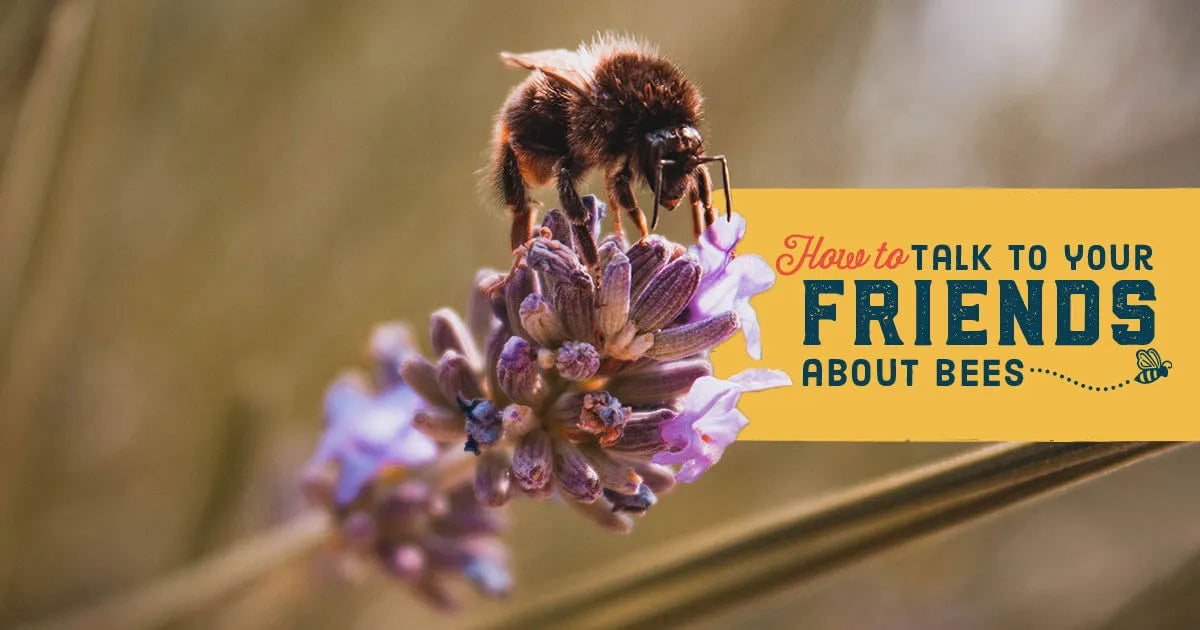How to Talk to Your Friends About Bees
Beekeeping
There are two parts of Pollinator Awareness Week: conservation and conversation. And while we would never stop someone from planting a pollinator garden, supporting local beekeepers, or even becoming a beekeeper, this week is when we all need to be talking the talk about how our tiny striped friends. So, while we’ve blogged about pollinators and even Pollinator Awareness Week in years past, this year’s blog is all about how you can help spread the word in your community.
- Don’t Overexplain.
Everyone has that slightly kooky aunt or uncle who’s more than happy to explain everything that’s wrong with the world and how they would solve it. A few minutes in, and even the politest among us start tuning out.
While there are many factors affecting pollinators – economic, political, ecological, chemical, ethical – your friends and family don’t need to understand them all. Just focus on one, and how it has affected you personally. For example:
“I never realized how many foods bees help produce. Can you imagine if we just didn’t have almonds or watermelons anymore all of the sudden?”
- Focus on the local.
If you or your friends aren’t agriculturally inclined, pollination can seem vague and abstract. Try talking about how bees and pollination have made a difference in your life or community. For example:
“Ever since I stopped using pesticides in my yard, I still hardly ever see any bugs, but I have so many more flowers nearby. The bees must love coming by.”
- Make it about them.
Yes, you’re trying to open someone’s eyes to the larger world around them, but people tend to be self-centered. While most people don’t think about bees that often – and, god forbid, might even be scared of the little cuties – they’re probably emotionally invested in something that bees help produce: honey, flowers, fruit, vegetables, nuts — or even jobs. Try using that topic as a wedge to show how pollination affects your friend directly. If they realize something they love depends on pollination, they’ll be that much more likely to advocate for it. For example:
“I feel like this neighborhood used to have a lot more wildflowers. You ever wonder what happened to them?”
“Have you ever noticed how there’s suddenly almond everything? Almond yogurt, almond milk, almond flour? Turns out that’s all because of bees. They pollinate every single almond that comes out of California.”
“Can you believe that farmers have to bring in millions of bees to help raise enough crops? It’s crazy how much we rely on them.”
Those are the basics, but the most important thing is to share your genuine love of bees and pollinators. That enthusiasm is always infectious. And, if none of the above work, try sharing some raw & unpasturized honey. Sweets have a way of getting to people.

